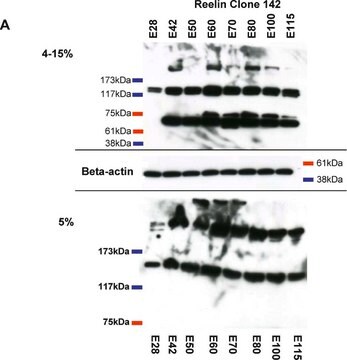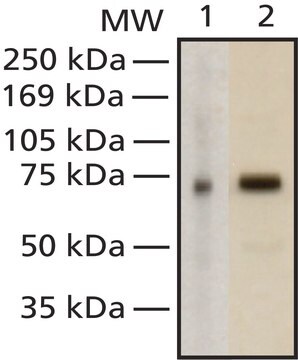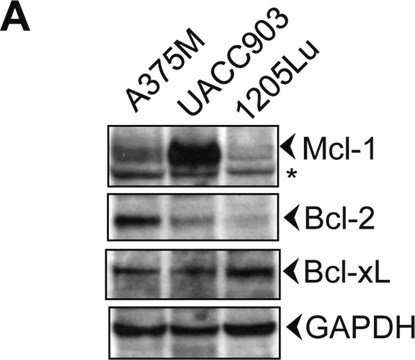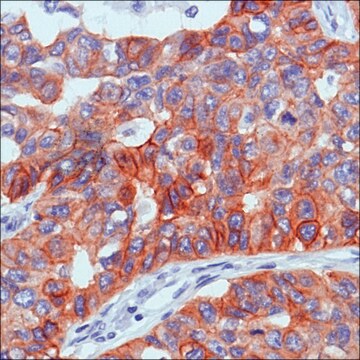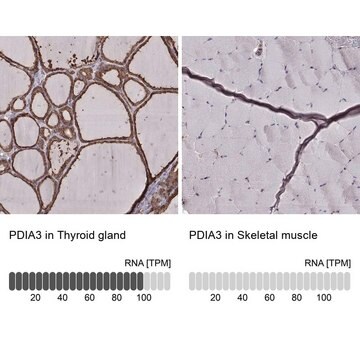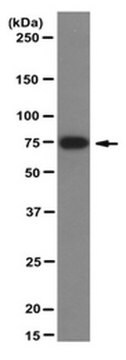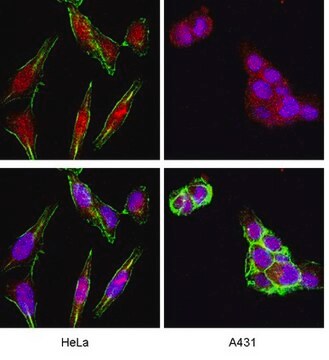ABN1728
Anti-MeCP2
from rabbit, purified by affinity chromatography
Synonym(e):
Methyl-CpG-binding protein 2, MeCp-2 protein, MeCp2
About This Item
Empfohlene Produkte
Biologische Quelle
rabbit
Qualitätsniveau
Antikörperform
affinity isolated antibody
Antikörper-Produkttyp
primary antibodies
Klon
polyclonal
Aufgereinigt durch
affinity chromatography
Speziesreaktivität
human, mouse
Speziesreaktivität (Voraussage durch Homologie)
rat (based on 100% sequence homology), bovine (based on 100% sequence homology), rhesus macaque (based on 100% sequence homology)
Methode(n)
immunofluorescence: suitable
western blot: suitable
NCBI-Hinterlegungsnummer
UniProt-Hinterlegungsnummer
Versandbedingung
ambient
Posttranslationale Modifikation Target
unmodified
Angaben zum Gen
human ... MECP2(4204)
Allgemeine Beschreibung
Spezifität
Immunogen
Anwendung
Qualität
Western Blotting Analysis: 0.5 µg/mL of this antibody detected MeCp2 in 10 µg of mouse brain nuclear extract.
Zielbeschreibung
Physikalische Form
Sonstige Hinweise
Sie haben nicht das passende Produkt gefunden?
Probieren Sie unser Produkt-Auswahlhilfe. aus.
Empfehlung
Lagerklassenschlüssel
12 - Non Combustible Liquids
WGK
WGK 2
Flammpunkt (°F)
Not applicable
Flammpunkt (°C)
Not applicable
Analysenzertifikate (COA)
Suchen Sie nach Analysenzertifikate (COA), indem Sie die Lot-/Chargennummer des Produkts eingeben. Lot- und Chargennummern sind auf dem Produktetikett hinter den Wörtern ‘Lot’ oder ‘Batch’ (Lot oder Charge) zu finden.
Besitzen Sie dieses Produkt bereits?
In der Dokumentenbibliothek finden Sie die Dokumentation zu den Produkten, die Sie kürzlich erworben haben.
Unser Team von Wissenschaftlern verfügt über Erfahrung in allen Forschungsbereichen einschließlich Life Science, Materialwissenschaften, chemischer Synthese, Chromatographie, Analytik und vielen mehr..
Setzen Sie sich mit dem technischen Dienst in Verbindung.